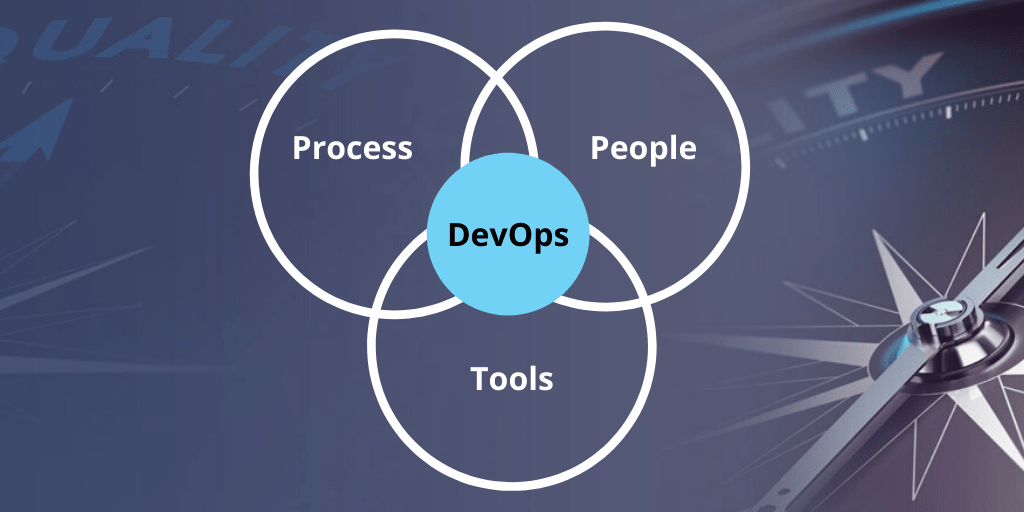
The IT industry can be categorized at a high level into three main streams of employees, one is generalist, the second is specialist and the third is virtualist. The generalists are the employees who know all the technologies used in their organization at an overview level like an IT support guy or BPO or pre-sales executive. But they don’t know how to code or deeper technical knowledge.
Whereas, a specialist is someone who is an expert in a particular language like Java or Oracle and dive deep into the core technical skills. But unfortunately, in today’s challenging working environment learning one OS or one programming language is not sufficient, this is where a virtualist comes in. DevOps specialist is a virtualist who has extensive and deep knowledge of both operational and developmental skills all in one place.
However, to implement a successful DevOps process, a valuable DevOps practice needs to be followed. But the exciting part of DevOps is, it’s constantly evolving and doesn’t stick to a static set of DevOps best practices, hence we may term these as ‘emerging’ practices for DevOps implementation.
“To successfully implement continuous delivery, you need to change the culture of how an entire organization views software development efforts”
Tommy Tynja
Here is a quick compilation of the do’s and don’ts while implementing the DevOps process followed by the Best DevOps Consulting Companies around the world.
Why do we need to include DevOps Process?
“DevOps is not a technology but rather a process that advocates a collaborative working relationship between the Development and Operation Team that increases the stability of the production environment”
Serverless Architecture
DevOps uses a third party server model with the help of cloud services. It takes care of the entire architecture which helps in cutting down the expenses and save time. Many DevOps consulting companies help to implement DevOps into the cloud.
Low code / No Code Practice
Mastering a programming language with excellent coding skills may take seamless time to execute an error-free program but many cloud automation tools help to streamline the DevOps process by implementing CICD pipelines with easy UI and less coding knowledge.
Operational Efficiency
Moving from a monolithic architecture to microservices plays a vital role in saving the efforts and speed up the time-to-market process. Microservices which is a fragment of interconnected small units helps in building independent features parallel & increases the scalability.
Practice 1: Focus on 3 essential components
Understanding your current infra is essential before embracing a DevOps culture. Three core principles which are needed to be in alignment at all times are
People, Process and Tools.
You need to build a Process that minimizes the software cycle time, scalable for the long run and collaborating across silos in detecting any issues early and quickly.
Choosing the right infrastructure automation tools & technologies helps in implementing the DevOps culture seamlessly.
Practice 2: Adopting Automated Testing
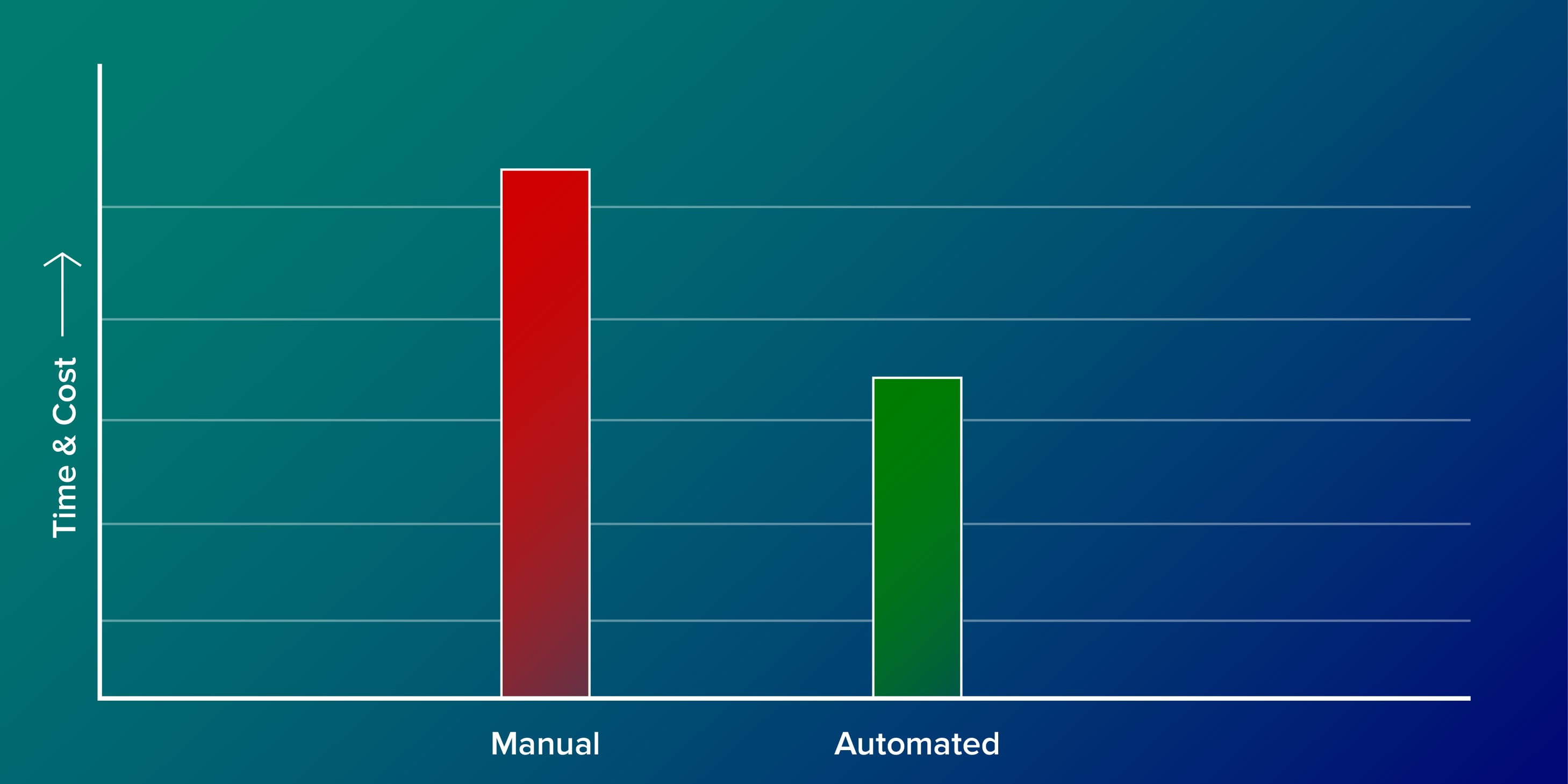
By implementing DevOps Services you will be able to practice the automated regression testing that improves the code quality. They follow testing often and testing early approach where any code defects they will rectify then and there without waiting for it to get deployed into the production environment.
Hence this practice ensures a quality code before releasing each chunk of code into production and hence it simplifies the workload of operations team where they do not get any undetected code from the developers’ team.
Practice 3: Effective Tool Selection
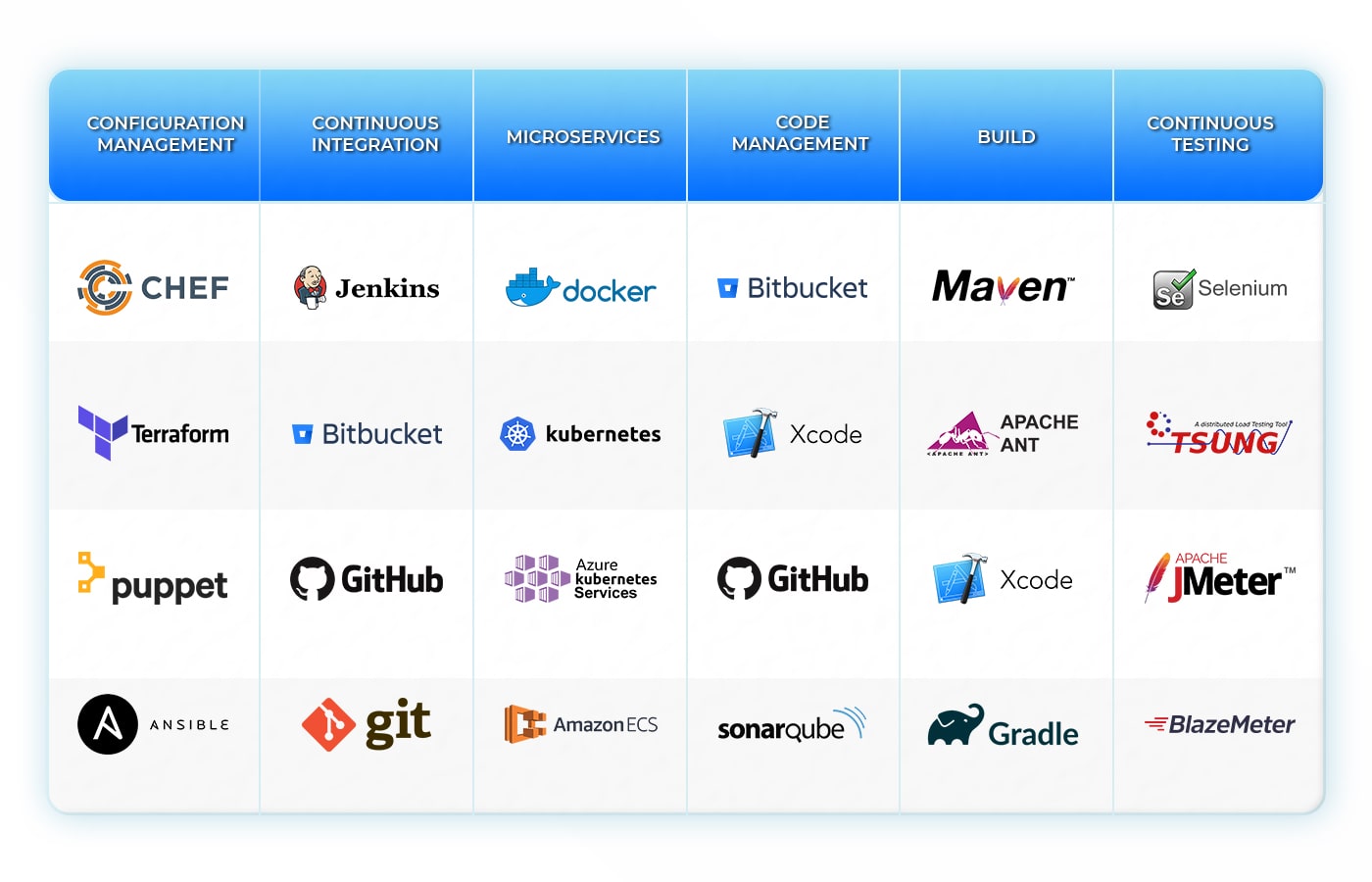
As we discussed earlier that tools are one of the important components for transforming into a DevOps culture, a thorough knowledge of DevOps automation toolset is essential. Comparing the DevOps tools and choosing which tool is suited for a specific enterprise.
To ensure that the tools are integrated well and working as expected,
– Start logging
– Monitor the logs
Again DevOps tools are an emerging set of dynamic tools evolving at each phase of time. It has three main categories namely, Infrastructure as a Code, Continuous Integration / Deployment and Configuration management.
Practice 4: Continuous Integration & Continuous Deployment
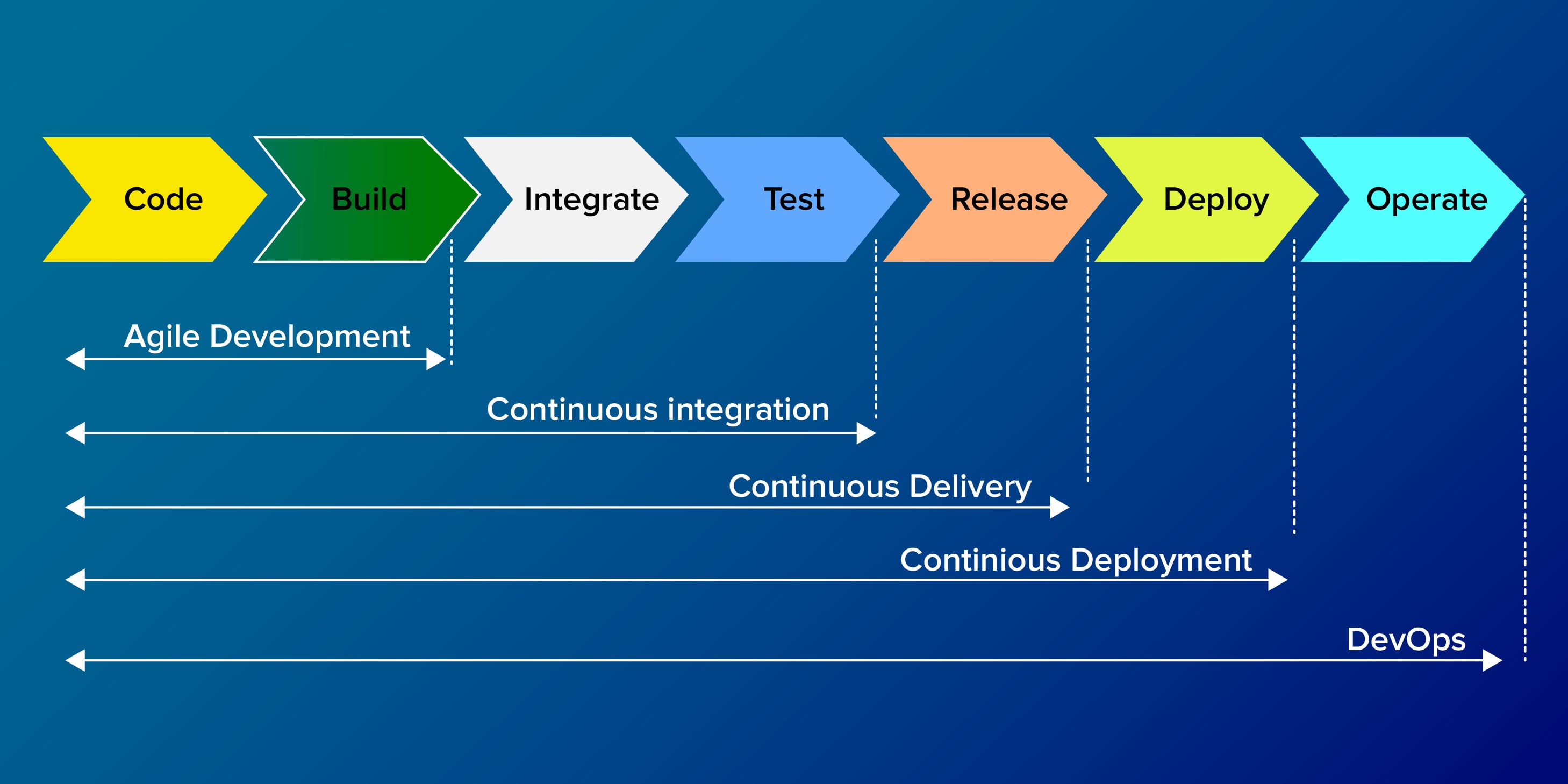
One of the key practices of DevOps is automating a continuous deployment workflow. Maintain a staging environment that simplifies the production process. Always maintain a staging stage that matches your production environment. Practice to first deploy in the staging phase before moving to the production reduces the debugging time. Also enabling a version-controlled artifact is the best approach. Follow the Industry best practices of DevOps that automate the test features and other functionalities to ensure the DevOps process is executed as expected.
For every commit, the developer team updates in the repository of these changes, where the test team is notified about the current workflow where the continuous integration process will be triggered for automated builds and test runs.
Practice 5: Application Monitoring
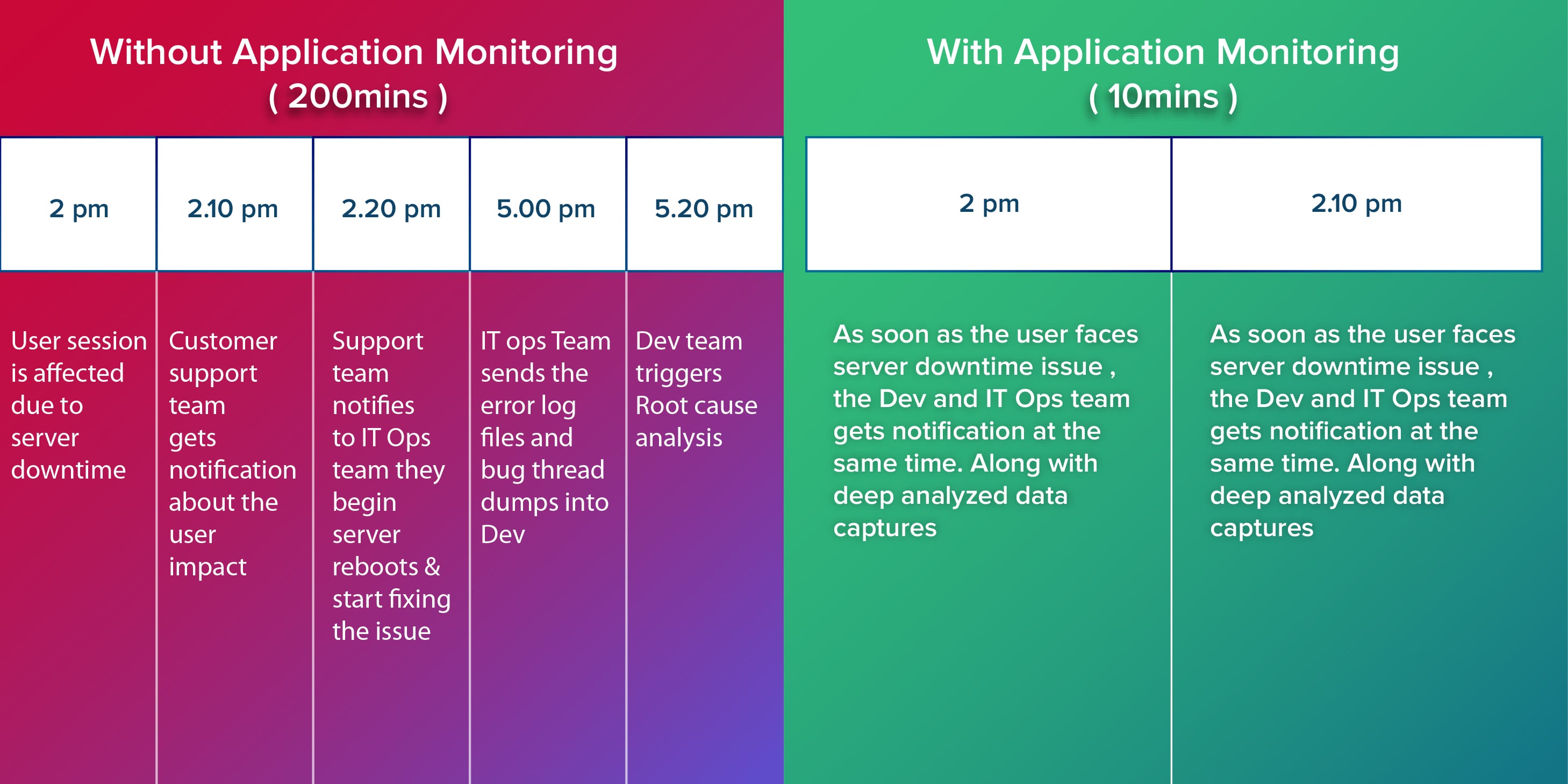
Before adopting a DevOps approach, many research shows that many developers do not monitor the application performance in production and assume that if anything fails it’s related to infrastructure on which it is run. But it depends upon the few driving factors like app logic & configuration and how infrastructure uses them effectively. Many DevOps service providers use App monitoring tools like AppDynamics enable to monitor java, Node.js applications and New Relic precisely detects the root cause of the issues as early as possible. These tools help the developers to be proactive by sending them alerts whenever things do not go as expected.
Practice 6: Using Metric Dashboards
As Dashboards give a visual representation of high-level data with key performance metrics to easily understand the software performance, DevOps engineers advocate on metrics dashboards. It helps to monitor the entire DevOps implementation process along with how effectively the DevOps teams work together, integration of cloud automation tools and overall platform health status and so on.
To further simplify the process, the DevOps team categorized three types of metric dashboards namely Agile project management dashboard, Application monitoring dashboards, and DevOps platform observation dashboard.
Practice 7: Breaking the Organization Silos and Encouraging Collaboration
Effective team collaboration provides better decision making to give better end-result. The availability of data and easy accessibility of information for anyone is possible through adopting these DevOps work culture. Adopting DevOps offers transparency between teams and stakeholders to know in which stage the project is currently being developed aiming to give greater real-time visibility to the project details.
Closing Thoughts
Well, Is that all the best practices for implementing the DevOps? Of course not! The real secret is adapting to a DevOps culture is a dynamic process with emerging new Organizational demands and trending DevOps tools & technologies. Take these recommendations mentioned above.
At the end of the day, the core reason for transforming to a DevOps culture for any organization remains the same, ie to deliver high-quality software quicker like never before!
Disclaimer-
This blog is written by a guest blogger. The views, opinions, and positions expressed within this post are those of the author, they do not, however, represent the opinion or ideas of BDCC Global. The accuracy, completeness, and validity of any statements made within this article are not guaranteed. We accept no liability for any errors, omissions or representations. We are glad to provide such minds a platform to express and are thankful to them for their valued contributions and thoughtful insights on DevOps – which is what we believe in and treasure the most.
BDCC
Latest posts by BDCC (see all)
- Why Golang is Becoming the Go-To Language for DevOps Engineers - April 11, 2025
- Azure Arc: Extending Azure Services to Hybrid and Multi-Cloud Environments - April 8, 2025
- How AI Is Reshaping DevSecOps Governance - April 4, 2025

